Have To Must Difference
(NOT He must comes with us.;.
Have to must difference. There is a small difference between how we use the semi-modal verb had better compared to other modal verbs like have to/must or should. Use must/mustn’t in negatives and questions. = I have no choice.
MUST and HAVE TO are both used to express an obligation, responsibility or necessity. I have to go into work early tomorrow. Must mustn't had to a) must b) mustn't c) had to.
Aunque pueda parecer que MUST y HAVE TO se pueden usar por igual, hay algunos matices que hace falta conocer. Neither is a complete sentence. Here again the sentence directs that people are required to or are compelled to do something (here it is keeping one’s word) by the use of threat or force.
These sentences are all similar, but they are slightly different. 1) In the affirmative:. Should = used for give advice (not as strong as the words above);.
There is a small difference between the meaning of “have to” and “must” and it is a different type of obligation. Synonym for Must In some cases they are similar. Mustn't vs Needn't vs Can't Similar Exercises:.
The difference between MUST and SHOULD Must and Should are both modal verbs. While must is a modal verb, have to is a semi-modal verb, in the sense that as a modal. The difference between must and have to can be explained clearly on the following grounds:.
Need, when followed by to and a verb, is the narrowest of the three verbs. This has to be the right place. You must do that means You are forced (compelled) to do that.
British English often makes a distinction between them. I must do my homework. It tests what you learned on the have to, must page.
Must, have toand have got toare all used to express obligationor theneed to do something. It's the difference between "have to" and "need to". Must means "really should or else it will be bad for you", it expresses an obligation forced by the speaker.
Doing the homework is required. I must buy some mangoes. Updated Jul 27, 10.
Both forms can be used to express ideas such as possession and relationships. • Must expressa os sentimentos do locutor, enquanto have to expressa, sobretudo, uma ideia impessoal:. • The expression have to is used to indicate the sense of ‘necessity.’ • On the other hand, the word must is used to indicate the sense of ‘compulsion.’ • At certain instances, have to can mean ‘be strongly recommended to do something.’ • Moreover,.
The first one means he has no obligation to leave, but the second means he has an obligation not to leave;. = The same meaning as "have to" but it sounds more formal. (NOT I must to go to the doctor.;.
This page explains the differences between 'have to', 'have', 'have got to', 'have to', and 'got to'. What is the difference between Have To and Must?. Had better is used to give strong advice.
En este artículo hablaremos sobre las diferencias que hay entre MUST y HAVE TO y sus correspondientes formas negativas. Modals With Passive Voice 1 / 2 14. Normally, in the present and in the affirmative, they're identical.
Must and have to are both used to talk about obligations:. “She must go to the store” and “She has to go to the store.” The meanings here are the same. You must abide by the law.
(It is not my decision - my husband asked me to buy them.). Have to and must are being looked at together because of the inter-changeability when used for certain functions and the confusion caused when they cannot be interchanged for others. Must can be used as synonyms.
♦ I must buy flowers for my mother. Be careful with the negative of Must and Have to. Have to is NOT an auxiliary verb (it uses the verb have as a main verb).
5-6-7 Mustn't vs Don't Have to Exercises 1 / 2 / 3 8-9-10 Must vs Have to / Has to Exercises 1 / 2 / 3 11. When we are talking about another person's obligation we use have to, too. Must and have to are both used for obligation and are often quite similar.
“Have to’ is more common, especially in North America, but in the UK there is a subtle difference:. The verbs need, have to, and must are all synonyms of one another and are used to mean that something is necessary or required. “have to” and “must” both express obligations, but there’s a subtle difference.
Make sure to point out that 'have to' is used for daily routines while 'must' is used for strong personal obligation. On the other hand, ought to is less emphatic than must, but more than should. We say "have to" when we want to talk about obligations - things we have no choice about doing.
= He must leave now. I must go now. Had better = used for strong advice;.
I have to do my homework. Must is used mostly to talk about the feelings and wishes of the speaker and hearer. The crucial difference between should, ought to and must, is based on the extent to which they emphasize, in the sense that must is the most emphatic of the trio.
They can be used interchangeably in the present tense, except that mustsuggests that it is the speaker. We are not lost. Before looking at this difference between should and must, let us first see what there is to say about both of these words individually.
MODALS + V3 Practice Test Ought to (Should) Have / Must Have Needn't Have / Didn't Have To Should Have Done Drag. In other words, it’s not a rule. If I do not do my homework there may be consequences.
However, 'must' is generally used for strong personal obligations and 'have to' is used for responsibilities at work and in everyday life. We use have to and must to express obligation. In this lesson, you can learn about the modal verbs must, have to and should.
Mustn’t means something is prohibited or it is not allowed. It indicates the exigency of an act. There is a slight difference between the way we use them.
Must and Have To. There is a BIG difference in meaning between Mustn’t and Don’t have to. The main differences between must and have to are:.
(indicates that the speaker is certain that the subject will have executed the predicate) or must can be to make musty while will is (archaic) to wish, desire or will can be (rare|transitive) to wish, desire (something). I must do this right now!. He must be a policeman.
For each space, choose which is better - 'must' or 'have to'. But with a negative, there are two possibilities;. Have to 'Have to' is used to express certainty, necessity, and obligation.
The speaker thinks it is necessary, or it is the rule. For example, the two sentences given below express the same idea. 2) In a very polite question May I open the window?.
We must talk to her before she leaves. Must means that the obligation to do something comes from the speaker. I have to hand in reports every week.
“Have to” and “must” are very similar in meaning and can often times be used interchangeably. Have to definition is - —used to say that something is required or necessary —also have got to. He doesn't have to leave.
2) In the negative:. The main difference between the two words “should” and “must” is that “must” is a stronger word, as mentioned before. In this grammar les.
"you don't need to dot that". When you say, I have to go into work early tomorrow, you mean that. How to use have to in a sentence.
"Must" and "Have To" Differences. Should vs Must Should and Must are two modal auxiliary verbs in English language that should be used correctly as there exists a difference between should and must. Have to = used for strong advice, obligations, and rules;.
In English, we use "must" and "have to" to express a strong rule or law. Designed for ESL students. Sometimes, 'must' and 'have to' can be used to speak about responsibilities.
So your question appears to be a matter of must have versus must have had. I.e, he must stay. Let’s look at our previous example using MUST:.
HAVE TO has a different meaning:. Both modal verbs can be used when talking about obligation. HAVE TO has a meaning similar to MUST.
The difference between should and must can be summarized like this:. Yesterday I _____ finish my geography project. You can do this grammar quiz online or print it on paper.
The entry for today is a very subtle one:. Both verbs differ in their forms and their meanings as well. The main difference between must and have to can be the emotional context.
In American English have to is the normal form. Have / Has to expresses general obligations. Have to, must Quiz.
The obligation comes from an external source. You should do that means It is advisable (recommended) that you do that. Generally, they all mean that you’re talking about a responsibility, an obligation, or something that is important to do.
Modal verbs don’t add -s after he/she/it. Have to can play the role of must in the past (had to) present, and future tenses. I have to brush my teeth.
This is where they are similar. I must go to the doctor. Professor Watkins told me today that I give in that assignment by Friday at the latest.
Must/mustn’t, have to/don’t have to – form. Use must + infinitive without to. ‘must’ is used for internal obligation and ‘have to’ is used for external obligation.
Have to • Must expresses the speaker's feelings, whereas have to expresses, above all, an impersonal idea:. Introduce the grammar by having the students take a look at the grammar sheet below. That’s the good news.
Things you cannot choose not to do. I have to go to the school. Do we say "I must do my homework" or "I have to do my homework"?.
Do you know the difference between 'must', 'have to' and 'should'?. ≠ He must not leave. We use the word ‘must’ to show the indispensability of something.
Have to Must e have to expressam uma obrigação, uma necessidade, mas existem pequenas diferenças:. I have to file reports every week. Have them make a list of five things that they have to do every day.
She will _____ wait in line like everyone else. Must is a modal verb, and modal verbs are followed by infinitive without to. 1) Probability She may come tomorrow.
It is important that you do NOT do something. We include have to here for convenience. Discuss the differences between 'have to' and 'must' in the positive form.
(It's her birthday and I decide to do that.) ♦ I have to buy flowers for my mother-in-law. You turn back and use Smith Street. • Mustn't expresses prohibition You.
They are both followed by the infinitive. What is the difference between MUST and HAVE TO?. They might be heard standalone in casual chat, but just a.
MUST is used when expressing obligation or an unavoidable requirement, whereas SHOULD is more of a recommendation, or simply a desirable goal. It is most often used to say that an action should be done:. If you say, We must talk to her before she leaves, you mean that you think this is very important, and you need to do it.
In this lesson we look at have to, must and must not, followed by a quiz to check your understanding. As such, many people use them in this way with no distinction. Diferencia entre MUST y HAVE TO.
It is less common to use "must" in the U.S.A. Have and have got are usually possible with little or no difference of meaning. Must は、自分の意思で「~しなければいけない」と感じた時に使われるフレーズとなるため、自分で今夜終わらせないといけない、と思っている時に使われます。 have to は、外的要因が加わった事により「~しなければいけない」と言うニュアンスを持っている場合などに使われます。.
The main difference between must and have to is, Must indicates a personal circumstance makes the obligation necessary whereas Have to indicates an external circumstance that makes this obligation necessary. Includes example sentences and grammar rules for different tenses. Both must and have to can be used to talk about obligation.
As verbs the difference between must and will is that must is to do with certainty;. However, we say "need to" when we want to…. He must come with us.
So, it is obvious that the degree of emphasis is least when we use should in our sentence. One must keep his word. Unlike “must” where we just make an inversion to create the interrogative, “to have to” is a little more difficult as it requires an auxiliary verb in the form of the present tense of “to do”.
But they each have slightly different connotations and uses. So, the main difference is that between advice and obligation. Must = used for strong advice, obligation, and rules;.
These words can often be used interchangeably in English;. Similar to have to – strong obligation. There is a slight difference in nuance between them.
While Must can generally be replaced by Have to in the present tense, there is sometimes a slight difference in meaning or use. Must is a modal auxiliary verb. Must / Mustn't / Needn't / Have to 12-13.
“must’ve” is a contraction of “must have” (and a rather awkward expression, IMHO). This is a one way street. We use have to / must / should + infinitive to talk about obligation, things that are necessary to do, or to give advice about things that are a good idea to do.
• Have to mainly expresses general obligations, while must is used for specific obligations:. Must and have to express obligation or necessity:. Don’t have to means there is NO obligation to do something.
My back has been hurting for weeks.

What S The Difference Between An Hsa And A Medicare Msa

The Difference Between Must And Should Is The Life You Want And Picture Quotes
Q Tbn 3aand9gctznsybspyfxmkyd8r N8mi2lbq6hzhyhrnbzlsuzndvk6fsmu4 Usqp Cau
Have To Must Difference のギャラリー

Use Of Must May Can Could Have To Need To Has To Ea English

Must Mustn T Have To Don T Haveto

Tony Robbins Quote The Difference Between Must Should Is The Life You

Unfolding Mysteries A Game To Practise Modals Of Deduction Teachinggamesefl Com By Mike Astbury

Mustn T Vs Don T Have To What Is The Difference Youtube

Optimizing Lastnonblank And Lastnonblankvalue Calculations Sqlbi

Must Vs Have To Learn English Woodward English English Vocab

Must Vs Have To Must Not Vs Don T Have To 7 E S L

The Difference Between What You Should Do And What You Must Do

Must Musn T Have To Lesson Plan English Esl Worksheets For Distance Learning And Physical Classrooms

Amazon Com Having Manners Is The New Cool A Must Have Etiquette Guide For Every Teen Who Wishes To Make A Difference In The World Ebook Hammadi Samira Kindle Store

Must Have To Should Ought To
Www Jstor Org Stable 1162

Must Have Vs Nice To Have There S A Difference Myagentfinder Blog

Through What Potential Difference Must A Proton Be Accelerated For It To Have A De Broglie Homeworklib
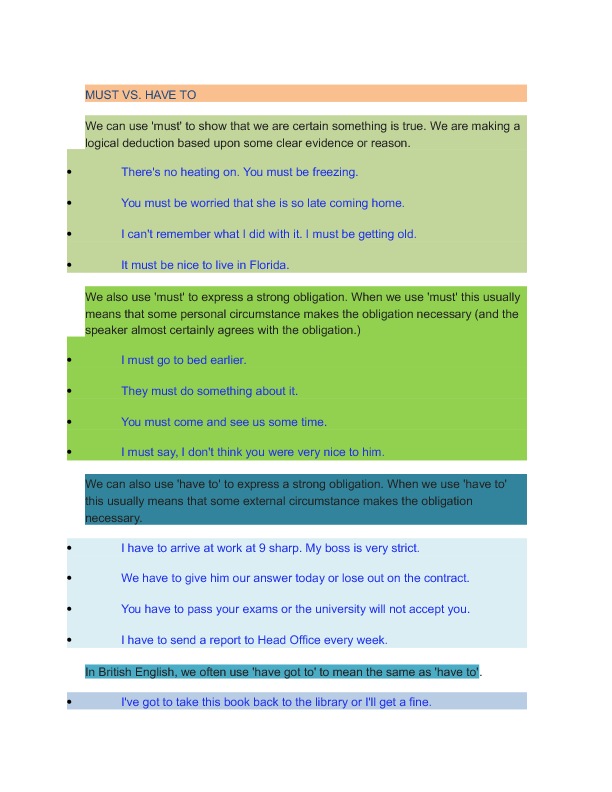
Must Vs Have To

Through What Potential Difference Must An Electron Pass To Have A Wavelength Of 500 A Express Answer As X 10 4 Value Of X Is

Table Shows Difference Between Hids And Nids Download Table
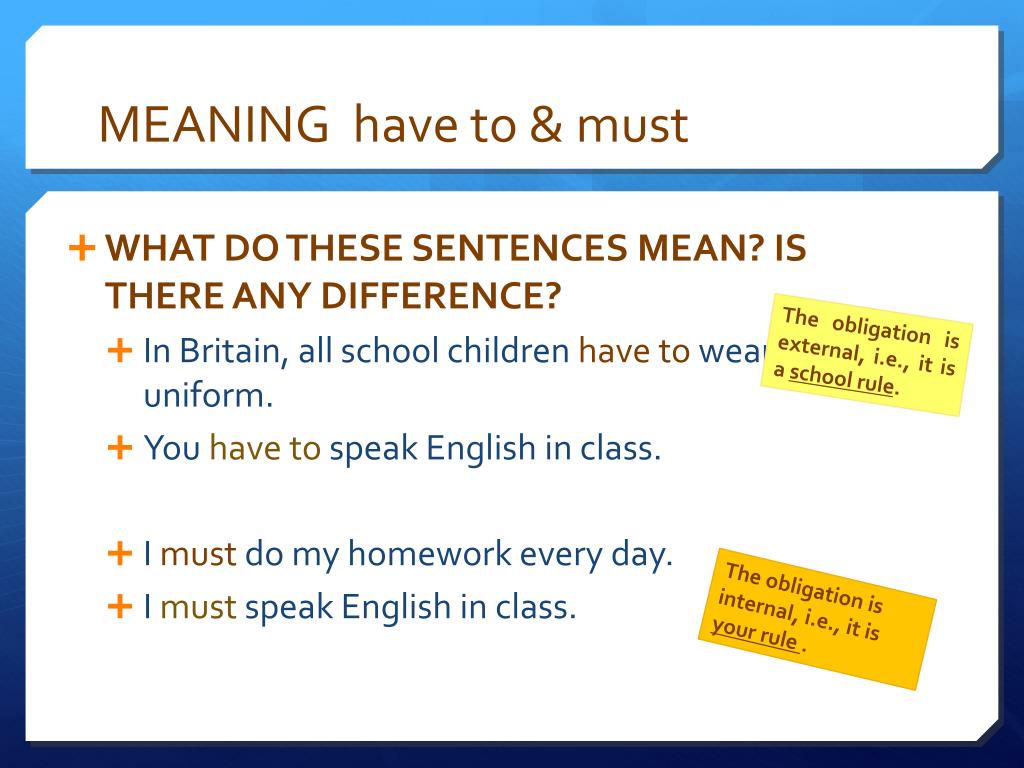
Ppt Modals Powerpoint Presentation Free Download Id

Mxjt Htrywjkwm

We Must Have Constantly Present In Our Minds The Difference Between Independence And Liberty

We Must Have Constantly Present In Our Minds The Difference Between Independence And Liberty Liberty Is A Right Of Doing Whatever The Laws Permit And If A Citizen Could Do What They
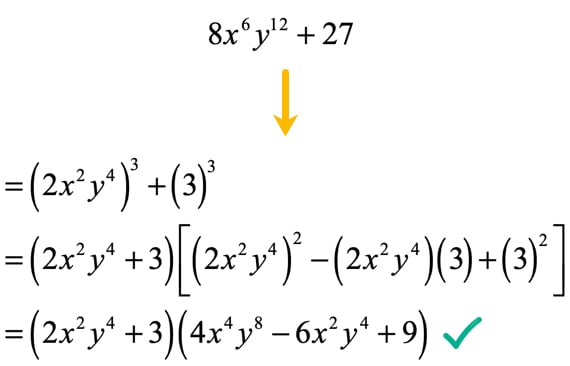
Factoring Sum And Difference Of Two Cubes Chilimath

Modal Verbs I Must Have To Don T Have To Mustn T Ppt Video Online Download
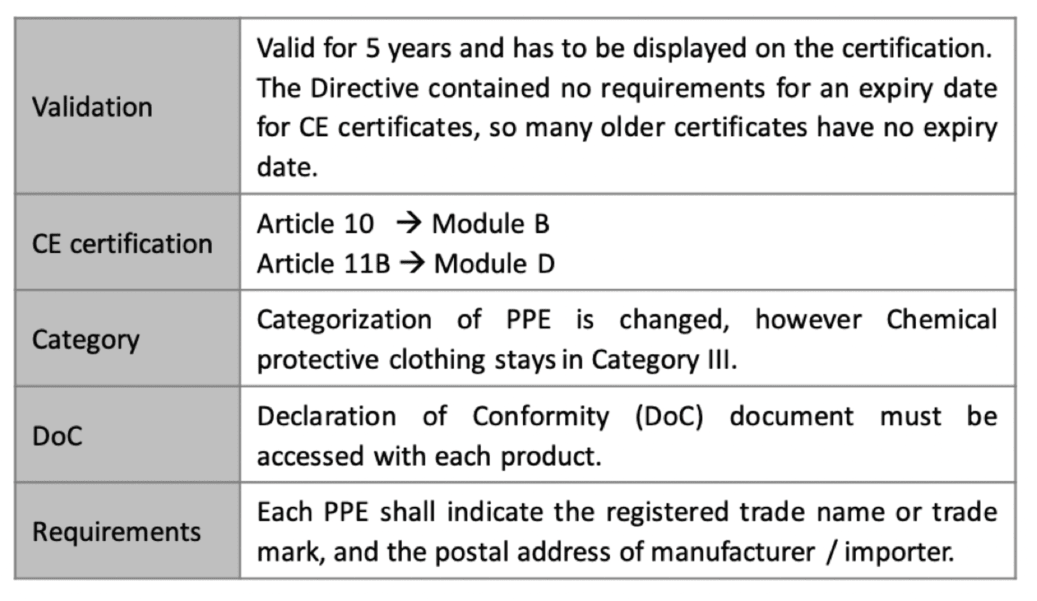
What Are The Changes Between The Directive And Regulation Health And Safety Middle East
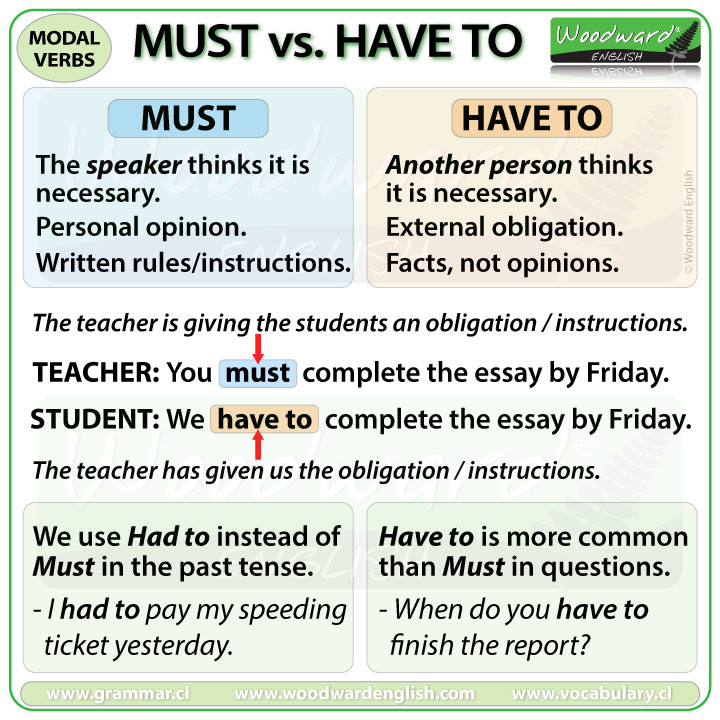
Must Vs Have To Woodward English
Q Tbn 3aand9gcrijkykkzjpgl7kg2vfz6efmcty3xlvxi 9wyfojjc Usqp Cau

English Grammar Must And Have To Mustn T And Don T Have To Eslbuzz Learning English

Differences Between Must And Have To Aba New Education Axis Academy Facebook

The Use Of Modal Verbs Must Should Modal Verbs Of The English Language Get To Know And Learn To Use Modal Verb Need

Bids Processed Data Survey Results Stanford Center For Reproducible Neuroscience

How To Use Can Could May Might Will Would Must Difference Between Should Ought To Meaning Of Owe In Urdu English Grammar Lesson Ea English 2 Ea English

Setting The Right Priorities Or Having Superior Time Management Skill Quote By Pearl Zhu Thinkingaire 100 Game Changing Digital Mindsets To Compete For The Future Quoteslyfe
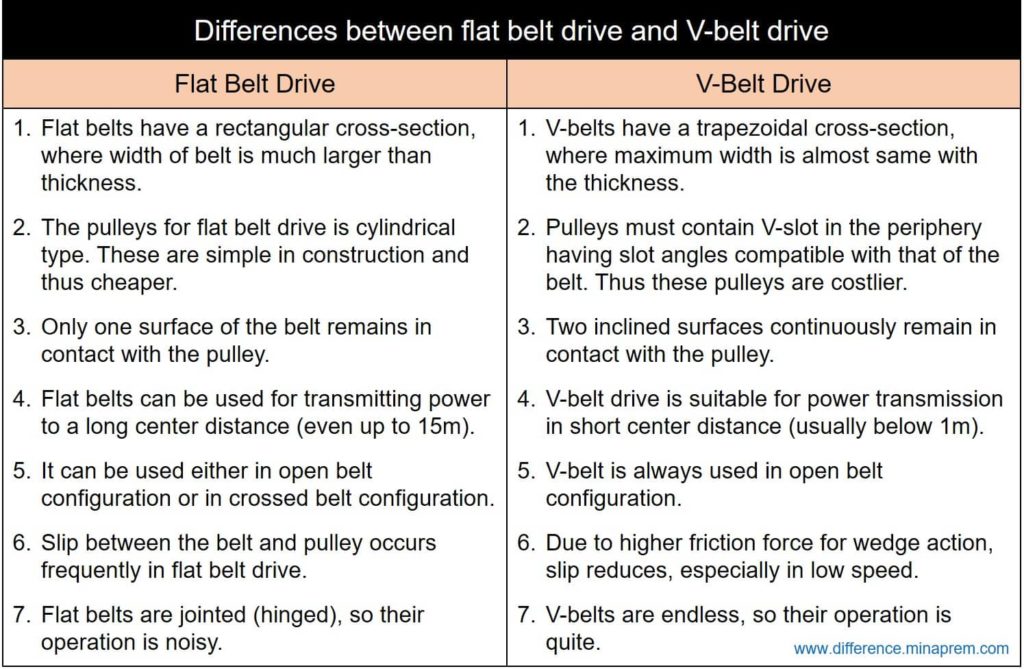
Difference Between Flat Belt Drive And V Belt Drive

Have To Vs Must

Difference Between Should Ought And Must My Rosetta Stone

What S The Difference Must Vs Have To Must Not Vs Don T Have To Teaching English Grammar Learn English English Phrases
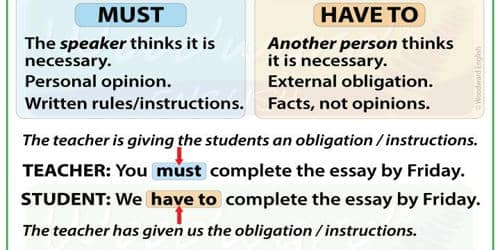
Difference Between Must And Have To Assignment Point

Difference Between Have To And Must Difference Between

The Difference Between What You Should Do And What You Must Do

Solved To Use The T Statistic To Test For A Difference Be Chegg Com
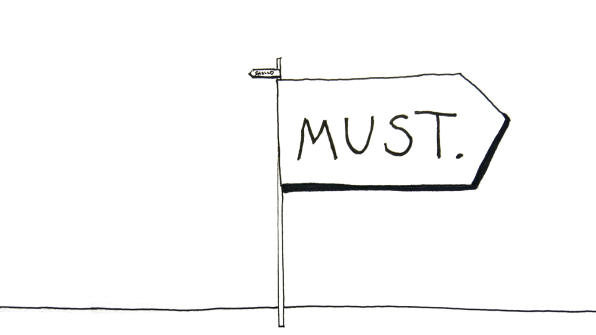
The Difference Between What You Should Do And What You Must Do

In Tuition What S The Difference Between Must Not And Facebook

Urgent 5 Questions Could Make All The Difference Nyaprs

Must And Have To Difference A Free Guide Post

The Difference Between Modal Verbs In Deontic And Epistemic Modality Semantic Scholar

What Is The Difference Between Must Mustn T And Have To Don T Have To Must Mustn T Vs Have To Don T Have To Hinative

Modals Of Obligation
1

Since Someone Asked You The Difference Between Should And Must Now I D Like To Ask About The Usage If Have To And Must What S The Difference Ask Fm The Yuniversity

English Grammar Must And Have To Mustn T And Don T Have To Eslbuzz Learning English
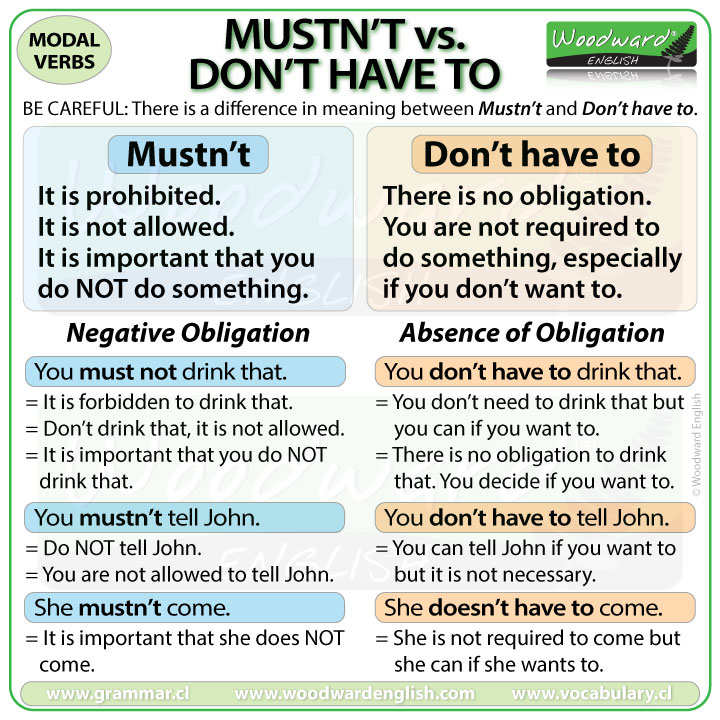
Mustn T Vs Don T Have To Woodward English

Modals I Wouldn T Won T Have Known Difference English Language Learners Stack Exchange
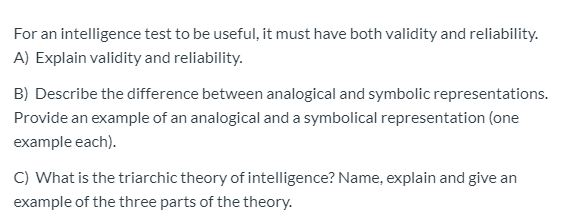
Solved For An Intelligence Test To Be Useful It Must Hav Chegg Com
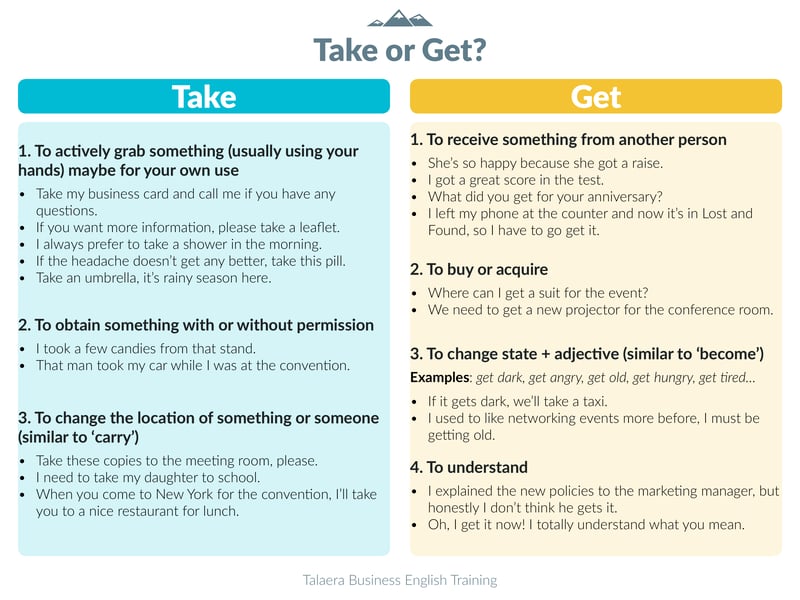
Take Vs Get Includes Examples And Exercises

The Difference Between Must Should Is The Life You Want And The Life You Have Tony Robbins
Ascentria Care Alliance Together We Must Make A Difference

Unit 9 Grammar Modals Of Necessity 1 Have To And Must Ppt Download

The Difference Between Must Have To Shall Need And May

Have To Vs Need To Vs Must What S The Difference In English

Have To Must Don T Have To Do You Know The Differences Learn English Learn English Words English Lessons

Must Vs Have To
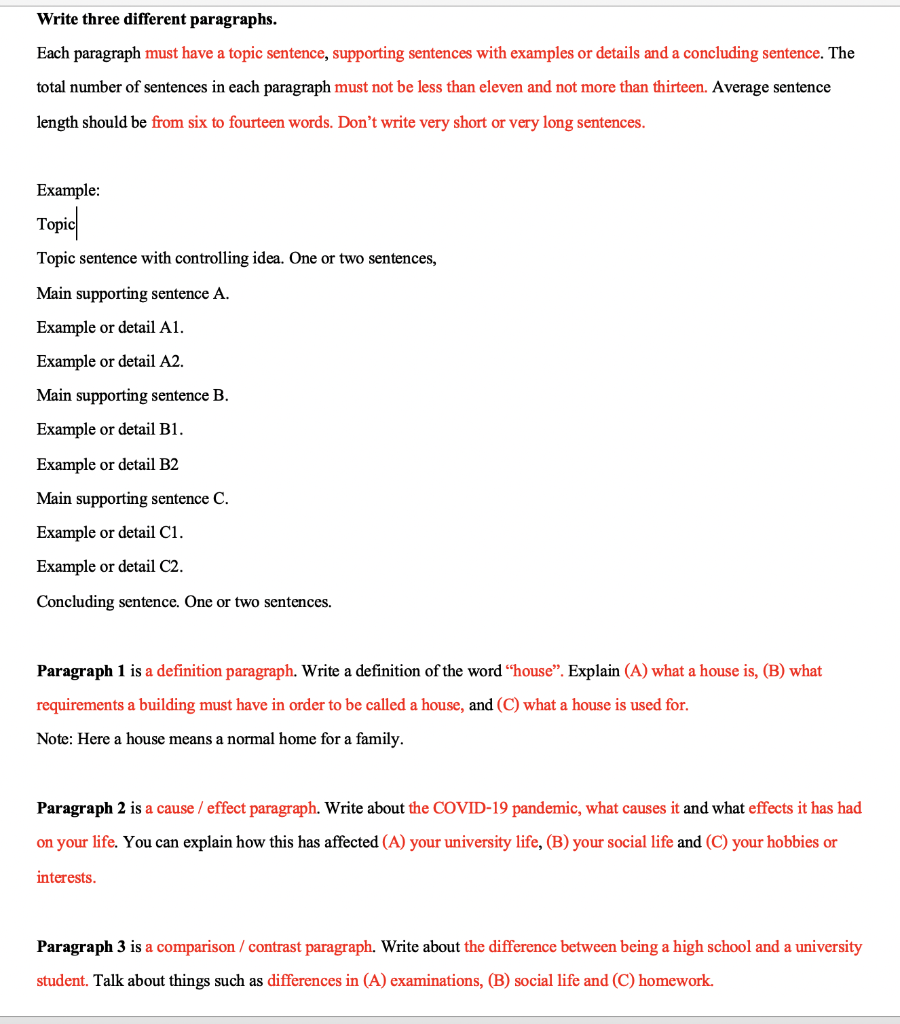
Solved Write Three Different Paragraphs Each Paragraph M Chegg Com
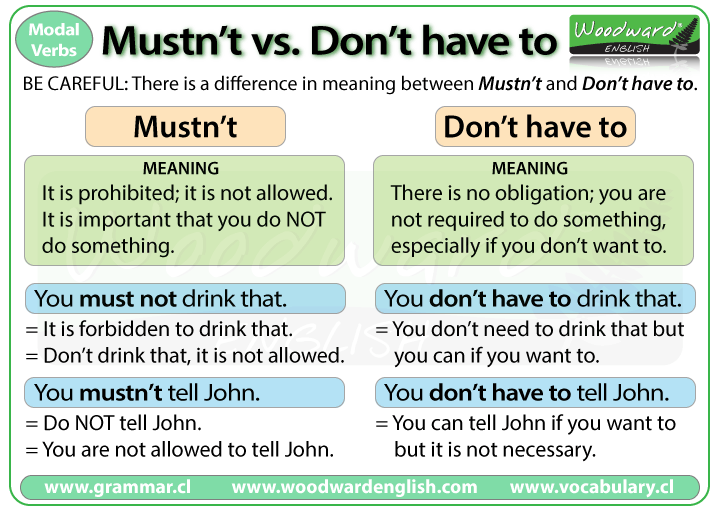
Must English Grammar
2

Must Vs Have To What Is The Difference Youtube
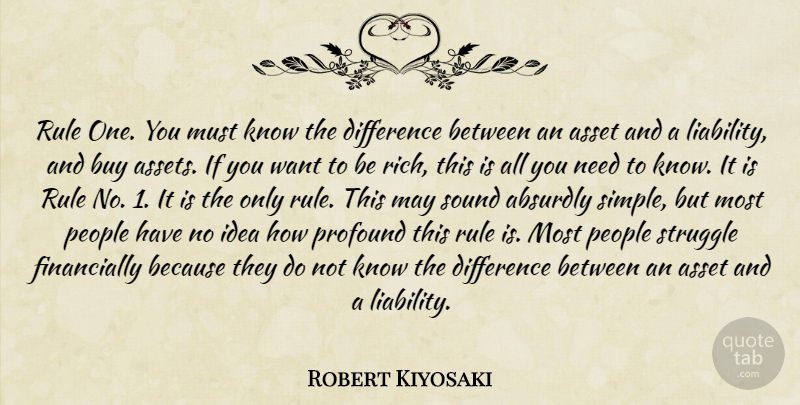
Robert Kiyosaki Rule One You Must Know The Difference Between An Asset And Quotetab
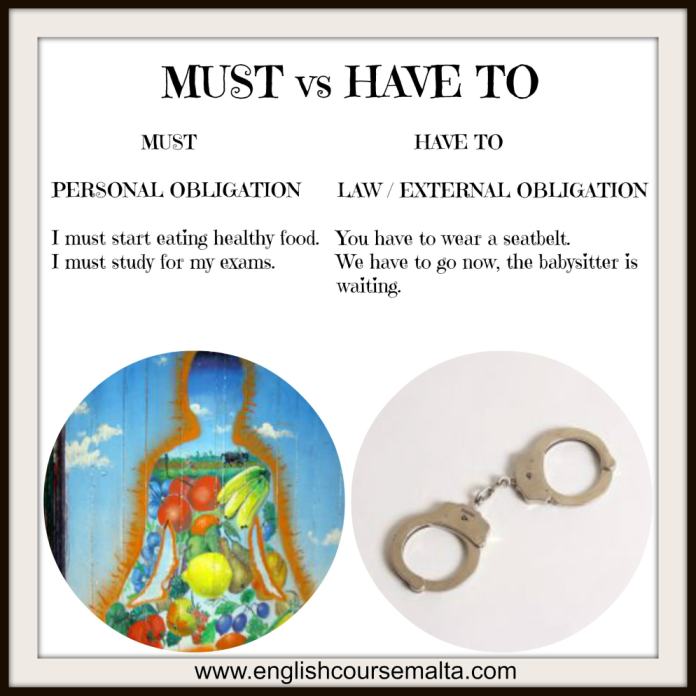
Have To Must Should English Course Malta

Must Vs Have To What Is The Difference Youtube
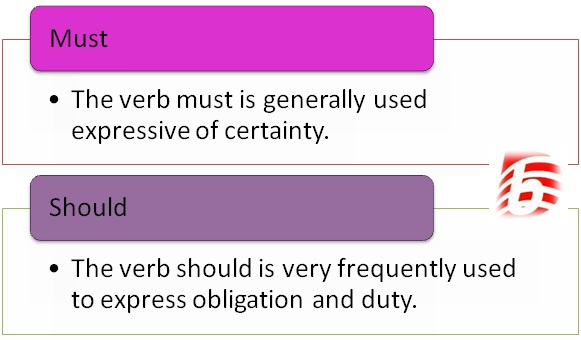
Difference Between Have To And Must Compare The Difference Between Similar Terms

Must And Should The Difference Between Must A Nojoto

Modal Verbs Can Can T Must Mustn T Have To Don T Have To Ppt Download

Seniors Who Make A Difference Nothing But Skills
Q Tbn 3aand9gcsje02xoidnqkyh Cqn3dhnoot4mqu2ksbucf4wuoxuk Hxwsiw Usqp Cau

When Mizkif Is Live But Because You Have 8 Hours Difference In Time You Must Download 21 Hours Of Content And I Liked Every Second Of It Mizkif

Difference Between Helping And Linking Verbs Difference Between

Courage Is The Difference Between Success And Failure You Must Picture Quotes

127shares Learn The Differences Between Must Vs Have To And Mustn T Vs Don T Doesn T Have To You Can J Learn English English Writing Learn English For Free

Modal Verbs Should Must

Modal Verbs Part 3 Should Must Have To English Esl Worksheets For Distance Learning And Physical Classrooms

The Difference Between Must Have To Shall Need And May

A Proton Is Accelerated Through A Potential Difference Of 400 V To Have Same De Broglie

The Difference Between Must And Have To Must Vs Have To Video

Marketo The Difference Between Sms Mms Push And In App Notifications

Oneclass What Pressure Difference Must Be Generated Across The Length Of A15cm Vertical Drinking Str

Have To Vs Must Watch This Video To Finally Learn The Difference

Courage Is The Difference Between Success And Failure You Must Have T Quote By Choa Kok Sui Compassionate Objectivity The Golden Lotus Sutras On Character Building Quoteslyfe

Must Have To

Need Must And Have To For Necessity Or Learn English Today Com Facebook

Ipv4 Vs Ipv6 What S The Difference Avast
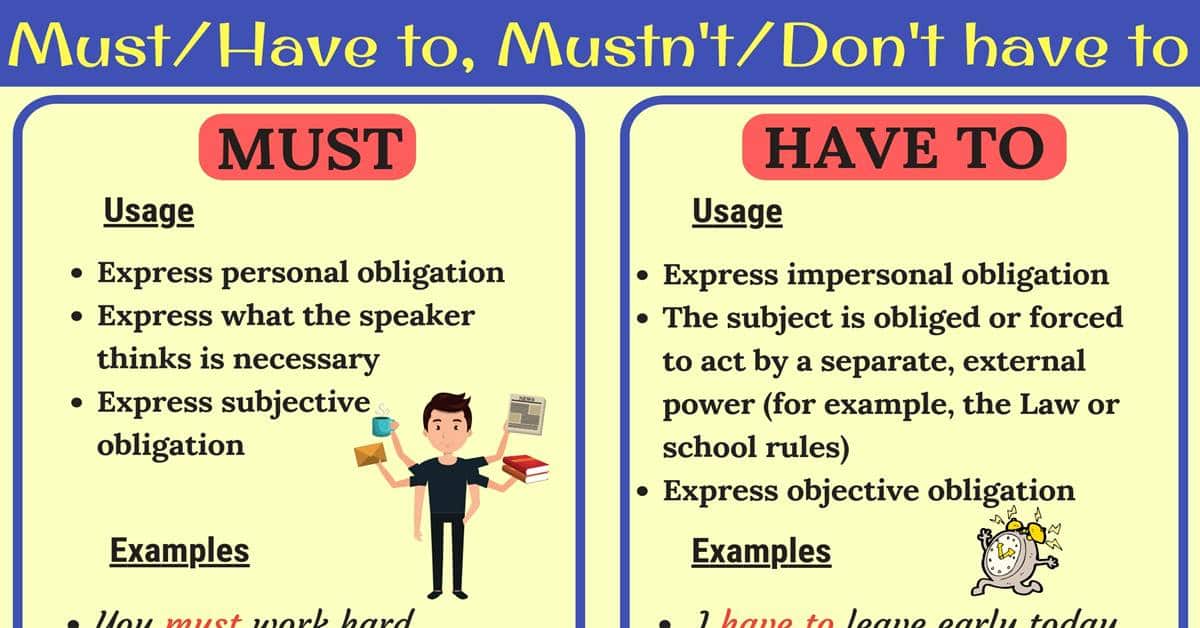
Must Vs Have To Must Not Vs Don T Have To 7 E S L

Difference Between Must And Have To With Examples And Comparison Chart Key Differences

English Teacher What Is The Difference Between Must And Have To In English Dz Breaking

The Difference Between Must Have To Shall Need And May

Scott Simon Critical Difference Between Stockbroker
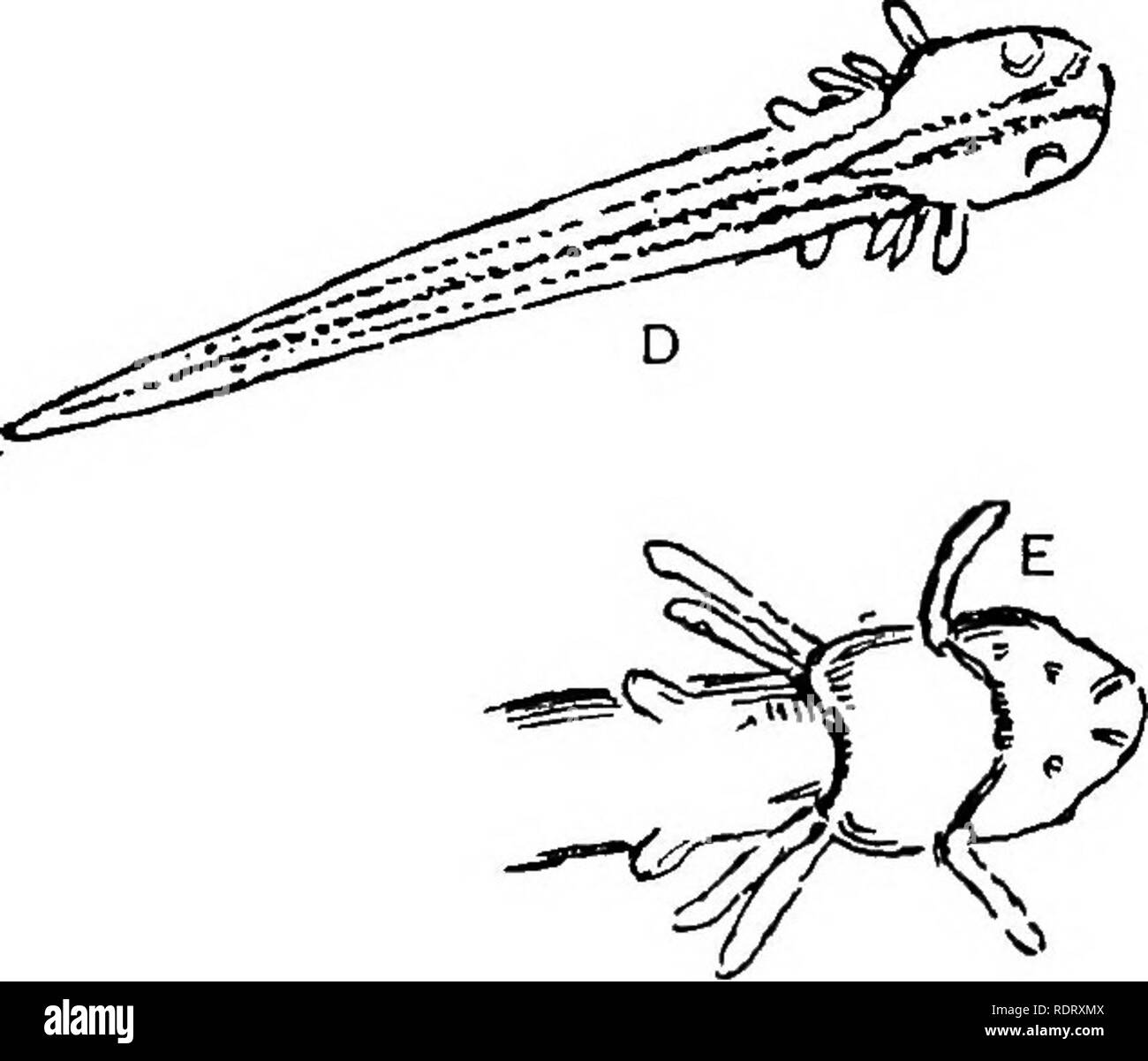
The Infancy Of Animals Animals Ft C I Course But There Is One Curious

The Difference Between Must Have To Shall Need And May

Difference Between Method Overloading And Method Overriding In Java By Madhu Cynix Medium

Have To Vs Must Watch This Video To Finally Learn The Difference

I Had To I Have To Or I Must What Is The Difference Myenglishteacher Eu Blog

Have To Vs Need To Vs Must What S The Difference In English




